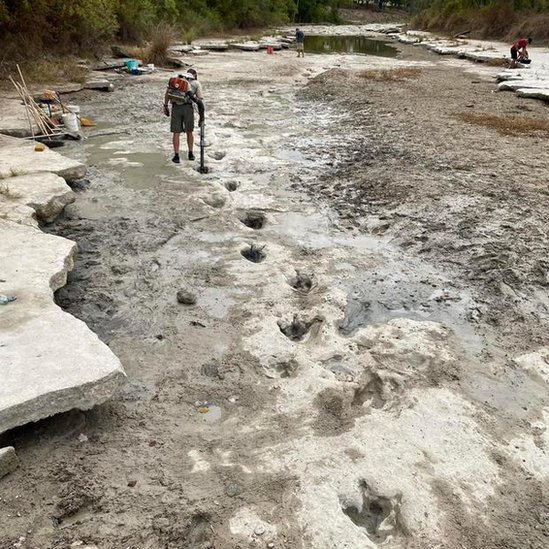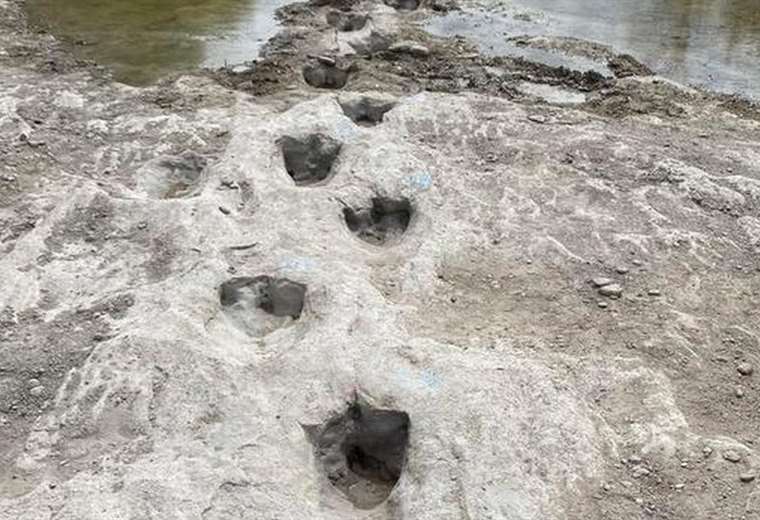August 25, 2022, 7:31 AM
August 25, 2022, 7:31 AM
The drought has left an amazing find exposed in the southern United States.
They are dinosaur footprints from 113 million years that, according to the first studies of the experts, were etched in a river bed in the state of Texas that has almost dried up.
The large marks correspond to the footprint of a Acrocanthosaurus and had remained hidden under various layers of sediment.
They were found in the state park Dinosaur Valley (Dinosaur Valley), in central Texas, and are some of the best preserved in the worldsaid Superintendent Jeff Davis.
Nearly the entire state is facing prolonged rainfall shortages, according to the US Drought Monitor. Last week, 87% of Texas’ acreage was experiencing one of the three most severe drought categories: severe, extreme and exceptional.
Excessively dry and hot summer conditions caused a river that runs through the park to almost completely dry up, revealing dinosaur footprints.
Davis told the BBC that the footprints found have been dubbed “the path of the lone ranger” and that it belongs to a dinosaur of the Acrocanthosaurus species that walked there.
It is estimated that there is a total of 140 footprints of this dinosaur, of which 60 have been exposed along about 30 meters.

The Acrocanthosaurus They were therapods, that is, a “typical three-toed dinosaur”Davis explained. With a height of about 4.5 meters, they would have weighed around seven tons.
These dinosaurs probably fed on the Sauroposeidonanother species whose tracks have also been found in the same state park.
The Sauroposeidon it was up to 18 meters highhad a long neck and weighed about 44 tons when fully grown.
Extreme weather has also led to another surprise in the US.
In the lake meadin Nevada, human remains they have been exposed in the reservoir (the largest in the country) as the water levels have decreased.
And in Europe they have been exposed Remnants of the Second World War and ancient towns that were under water.
Not all droughts are due to climate change, but excess heat in the atmosphere is accelerating the extraction of more moisture of the land and has worsened droughts.
The world has already warmed by around 1.2°C since the Industrial Age began and temperatures will continue to rise unless governments around the world drastically cut emissions, scientists warn.
Remember that you can receive notifications from BBC World. Download our app and activate it so you don’t miss our best content.


















